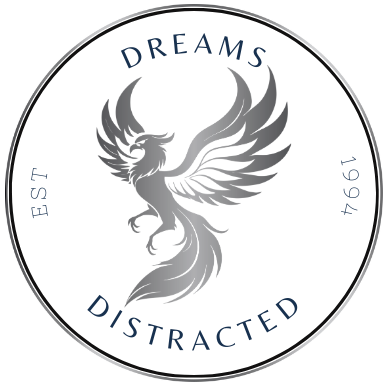Navigating Relationships with ADHD: Strategies for Connection
Living with ADHD can present unique challenges in maintaining healthy relationships. ADHD, or Attention Deficit Hyperactivity Disorder, is a neurodevelopmental condition that can impact one’s ability to focus, organize, and control impulses. These characteristics can affect how individuals communicate, manage emotions, and navigate social interactions within relationships.
Individuals with ADHD may face difficulties in expressing their needs effectively, staying organized, or managing time, which can lead to misunderstandings and frustrations in relationships. It is essential for both partners to understand how ADHD manifests in behaviors and emotions to foster empathy and open communication.
In navigating relationships with ADHD, embracing patience, empathy, and clear communication are key. By acknowledging and addressing the challenges associated with ADHD, partners can work together to find strategies that support each other and strengthen their connection. Understanding the impact of ADHD on relationships can lead to greater compassion, acceptance, and harmony in shared experiences.
Understanding ADHD in Relationships
ADHD can bring unique challenges to relationships, impacting communication, emotional regulation, and attention dynamics. Understanding how symptoms manifest in the context of relationships is crucial for fostering healthy and fulfilling connections.
Impact on Communication
In relationships, ADHD symptoms like impulsivity and distractibility can influence communication patterns. Individuals with ADHD may interrupt frequently, have difficulty focusing during conversations, or struggle with listening attentively. To improve communication and reduce misunderstandings:
- Practice active listening: Give your full attention to your partner when they speak.
- Set communication guidelines: Establish clear communication strategies to prevent misinterpretations.
- Use visual aids: Visual cues can help maintain focus during discussions.
Emotional Regulation Challenges
Difficulties in managing emotions can significantly impact relationship dynamics for individuals with ADHD. Emotional dysregulation may lead to outbursts, mood swings, or difficulty expressing feelings effectively. Coping strategies to foster emotional connection include:
- Mindfulness techniques: Practice mindfulness to enhance emotional awareness and self-regulation.
- Establish emotional cues: Create signals with your partner to indicate emotional states and needs.
- Seek professional support: Therapy can provide tools for managing emotions and improving emotional expression.
Attention and Focus Issues
Struggles with attention and focus can affect the ability to prioritize relationships and engage effectively. Individuals with ADHD may find it challenging to stay present during interactions or remember important details. Techniques to enhance focus and engagement in relationships:
- Break tasks into smaller steps: Simplifying tasks can improve focus and task completion.
- Use external reminders: Utilize calendars or apps to help with time management and organization.
- Practice mindfulness: Mindfulness exercises can enhance attention and reduce distractions in relationships.

Photo by Sebastian Arie Voortman
Tips for Building Strong Relationships with ADHD
Navigating relationships when ADHD is in the picture can come with its own set of challenges. However, with the right strategies and support, building strong, lasting relationships is very much achievable. Here are some key tips to enhance your relationship despite the hurdles ADHD may present:
Enhancing Communication Strategies
Effective communication is the cornerstone of any successful relationship, particularly when ADHD is involved. Tailoring communication techniques to accommodate the needs of individuals with ADHD can make a significant difference. Encourage active listening, strive for clarity, and aim for mutual understanding in conversations. By creating a communication environment that is supportive and accommodating, both partners can feel heard and valued.
Developing Empathy and Understanding
Empathy plays a crucial role in fostering meaningful connections, especially in relationships impacted by ADHD. It’s important for both partners to cultivate empathy and understanding towards each other’s experiences and challenges. By practicing empathy, you can create a supportive and harmonious partnership. Taking the time to see things from your partner’s perspective can strengthen your bond and create a sense of mutual respect.
Seeking Professional Support
When faced with relationship challenges related to ADHD, seeking professional help can be incredibly beneficial. Therapy or counseling sessions can offer valuable insights and tools to navigate the complexities of ADHD within a relationship. Professional guidance can help partners understand each other better, improve communication dynamics, and develop coping strategies tailored to their specific needs. Remember, seeking support is a proactive step towards building a strong and resilient relationship.
Incorporating these tips into your relationship dynamic can pave the way for deeper connections, improved communication, and a more supportive partnership overall. Despite the challenges ADHD may bring, with patience, understanding, and a collaborative effort, building a strong and fulfilling relationship is within reach.
 Photo by Yan Krukau
Photo by Yan Krukau
Maintaining Healthy Boundaries and Self-Care
In relationships affected by ADHD, maintaining healthy boundaries and prioritizing self-care are vital for fostering understanding, stability, and mutual well-being. Setting boundaries effectively and embracing self-care practices can significantly enhance the quality of relationships and assist individuals in managing their ADHD symptoms constructively.
Setting Boundaries Effectively
Boundaries serve as crucial guidelines that help individuals with ADHD and their partners navigate interactions, expectations, and responsibilities within a relationship. By establishing clear boundaries, individuals can communicate their needs, limits, and preferences effectively, reducing misunderstandings and conflicts. Here are some tips for setting boundaries in relationships:
- Open Communication: Discuss boundaries openly and honestly with your partner to ensure mutual understanding and respect.
- Define Boundaries: Clearly outline what behaviors are acceptable and unacceptable to establish a sense of structure and predictability.
- Consistent Enforcement: Enforce boundaries consistently, reinforcing their importance and demonstrating commitment to mutual well-being.
- Respect Partner’s Boundaries: Acknowledge and honor your partner’s boundaries to cultivate a supportive and respectful environment.
Setting boundaries is not about control but rather about fostering healthy communication and mutual respect, essential elements for sustainable and fulfilling relationships.
Prioritizing Self-Care Practices
Self-care is vital for individuals with ADHD and their partners to maintain emotional balance, reduce stress, and nurture overall well-being. Prioritizing self-care routines can enhance resilience, improve relationship dynamics, and promote a harmonious environment. Here are some self-care strategies to consider:
- Mindfulness Practices: Engage in mindfulness activities such as meditation or deep breathing exercises to stay present and alleviate anxiety.
- Healthy Lifestyle Choices: Focus on nutrition, exercise, and adequate sleep to support physical and mental health.
- Time for Relaxation: Allocate time for activities you enjoy to recharge and replenish your energy.
- Seek Support: Connect with a therapist, support group, or counselor to address emotional needs and enhance coping mechanisms.
By prioritizing self-care, individuals can nurture their well-being, manage stress effectively, and contribute positively to the relationship’s longevity and harmony.
Conclusion
Navigating relationships when one or both partners have ADHD can present unique challenges that require understanding, empathy, and effective communication. By recognizing the impact of ADHD on relationships and implementing strategies to address the challenges, individuals can cultivate healthy and fulfilling connections.
In conclusion, fostering patience, open communication, and mutual support are crucial in overcoming the hurdles that ADHD may present in relationships. Acknowledging each other’s strengths and challenges, seeking professional guidance when needed, and prioritizing empathy can strengthen the bond between partners. Remember, navigating relationships with ADHD requires ongoing effort and a commitment to growth and understanding. By implementing the strategies discussed in this article, individuals can create supportive and harmonious relationships despite the obstacles posed by ADHD.

